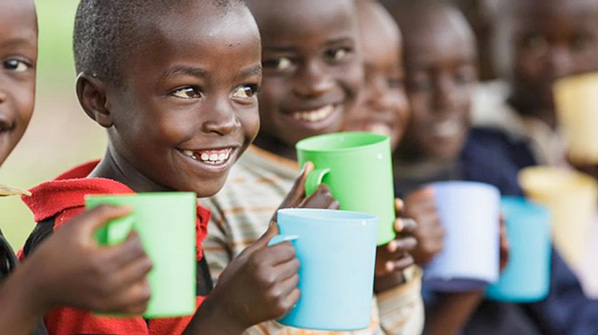
It always feels good to give a gift; but giving a gift that helps people get out of poverty and improve their lives feels even better. If you’ve still got some holiday shopping to do, consider giving a donation to Heifer International on behalf of a special person. Your gift can be $10 for a share of a goat that will go to someone who can then sell that goat’s milk, for example. Or maybe you want to give $30 for a family to get honeybees so they can begin making money selling honey products. You will be given a cute card with your donation to present to your gift recipient.
 Heifer International uses charity in a unique way. By providing key natural resources, the idea is to build communities that are self-determined and sustainable. In a sense, the decades-old organization works continuously to put itself out of a job.
Heifer International uses charity in a unique way. By providing key natural resources, the idea is to build communities that are self-determined and sustainable. In a sense, the decades-old organization works continuously to put itself out of a job.
“Many organizations have used the lens of charity, which in itself is not always sustainable,” says Elizabeth Bintliff, vice president of Heifer International’s Africa Programs. “We take quite a different approach at Heifer. We’re working with farmers producing at a small scale in rural communities, giving them access to markets to be able to really create their own livelihoods in a sustainable way; that’s the end game.
Bintliff points to a family she worked with in Africa. “We had provided them with twenty chickens to start with, to begin a poultry project. In a few years they had multiplied those manyfold and became the family that then supplied to us so that we had animals to place amongst other families. They had effectively become our supply chain. Stories like that are really inspiring—not just for the people who are ultimately benefited but for ourselves, because it gives us the momentum to continue our mission.”
Heifer works mainly in the agricultural sphere, primarily though not exclusively with livestock. “What we focus on is giving people and communities the tools to build their communities,” Bintliff explains.
Not telling people the “right” thing to do is a key part of Heifer’s mission. “How we see our role is that we aren’t there to tell people—whether they be African or otherwise—what’s best for them,” Bintliff concluded. “Self-determination is a big part. We start at a grassroots level; we help build communities, and we help repair the fragmentation that may occur so that people can find their own voices to advocate on their own behalves. We do it in such a way that when we step out of the picture, the work can continue without dependence on us. We find that to be critical for sustainability.”
To order a gift or get more information, please visit www.heifer.org.